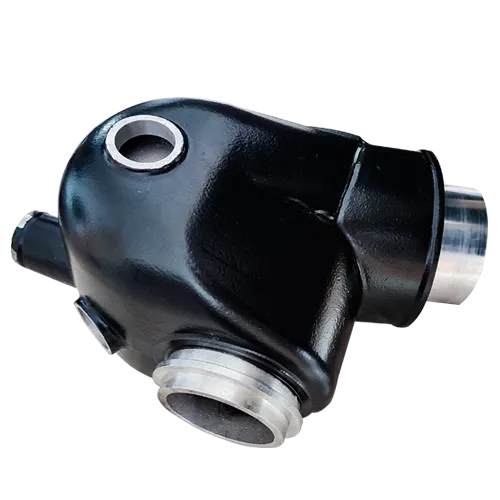Mobile:+86-311-808-126-83
Email:info@ydcastings.com
Weldable Steel Pipe Caps for Secure and Reliable Sealing Solutions
Weld-On Steel Pipe Caps An Overview
Weld-on steel pipe caps are essential components in various industrial applications, particularly in plumbing, oil and gas, chemical manufacturing, and water treatment. These caps are used to seal the ends of steel pipes, providing a reliable and secure closure. They come in various shapes, sizes, and thicknesses, depending on the specific needs of the pipe system. This article provides an overview of weld-on steel pipe caps, their types, benefits, and applications.
What Are Weld-On Steel Pipe Caps?
Weld-on steel pipe caps are fittings typically made from carbon steel, stainless steel, or alloyed steel. Unlike threaded or slip-on caps, weld-on caps are designed to be permanently attached to the pipe using welding techniques. This strong joint makes them ideal for high-pressure applications where leakage is unacceptable. The welding process also allows for a smooth transition from the pipe to the cap, reducing turbulence and pressure drops within the system.
Types of Weld-On Steel Pipe Caps
1. Standard Caps These are the most common type of caps used for closing off the ends of pipes. They can be manufactured in various sizes to fit standard pipe dimensions.
2. Reducing Caps These caps are designed to reduce the diameter of the pipe. They provide a gradual transition from a larger pipe to a smaller one, which can improve flow efficiency.
3. Flat Caps As the name suggests, flat caps have a flat surface that is particularly useful for applications where a smooth surface is necessary. They are commonly used in systems requiring minimal obstruction.
4. Custom Caps For specialized applications, manufacturers can produce custom caps to meet specific dimensions, shapes, and material requirements.
Benefits of Weld-On Steel Pipe Caps
1. Durability Weld-on caps are built to withstand high pressures and extreme temperatures, making them suitable for demanding environments. Steel construction ensures longevity and resistance against corrosion, especially when using stainless steel or coated options.
weld on steel pipe caps

2. Leak Prevention The welding process creates a solid, leak-proof seal that is much stronger than other types of joins, such as threaded connections. This reliability is crucial for applications where fluid loss can result in safety risks or financial losses.
3. Ease of Installation While welding may require specialized skills, the process is straightforward for professionals. Once welded, the caps are secure and do not require additional maintenance or replacement.
Applications of Weld-On Steel Pipe Caps
Weld-on steel pipe caps are used in various applications where it is necessary to seal off the ends of pipes securely. Some of the most common applications include
- Oil and Gas Industry Used extensively in oil and gas pipelines, these caps help prevent leaks and manage pressure in transport and storage systems.
- Water Treatment Plants In water treatment facilities, these caps secure pipes that carry chemicals, assuring that the systems remain closed and operational.
- HVAC Systems In heating, ventilation, and air conditioning systems, weld-on caps can close off unused pipe ends, improving system efficiency.
- Chemical Processing The durability and leak-proof nature of weld-on caps make them ideal for environments that transport corrosive materials.
Conclusion
Weld-on steel pipe caps are vital components in many industrial applications, providing a reliable means to seal pipe ends against leaks and pressure loss. Their durability, versatility, and ease of installation make them a favored choice among engineers and contractors. As industries continue to evolve, the importance of dependable components like weld-on steel pipe caps will only grow, underscoring their critical role in maintaining the integrity and efficiency of fluid transport systems. Whether in oil and gas or municipal water treatment, these caps ensure that operations run smoothly and safely.
-
Why Should You Invest in Superior Pump Castings for Your Equipment?NewsJun.09,2025
-
Unlock Performance Potential with Stainless Impellers and Aluminum End CapsNewsJun.09,2025
-
Revolutionize Your Machinery with Superior Cast Iron and Aluminum ComponentsNewsJun.09,2025
-
Revolutionize Fluid Dynamics with Premium Pump ComponentsNewsJun.09,2025
-
Optimizing Industrial Systems with Essential Valve ComponentsNewsJun.09,2025
-
Elevate Grid Efficiency with High-Precision Power CastingsNewsJun.09,2025











